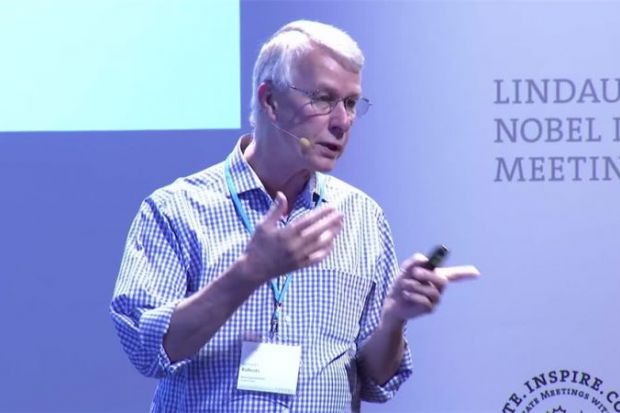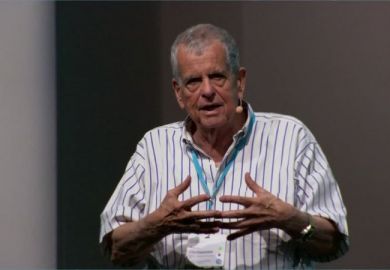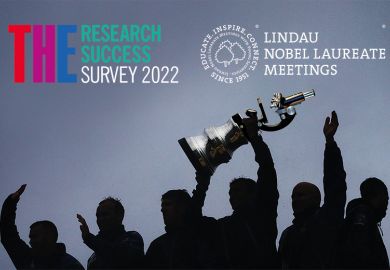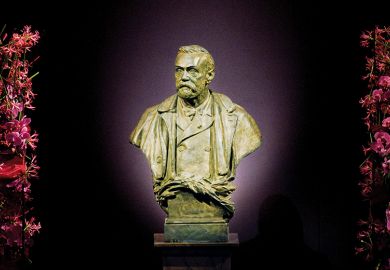Greenpeace’s “anti-science” opposition to genetically modified rice represents a “crime against humanity” because the vitamin-enriched crop could prevent the deaths of 2 million children a year, a Nobel laureate has argued.
In an attack on the environmental charity, Sir Richard Roberts told an audience in Germany that Greenpeace’s continued opposition to “golden rice”, a variety of rice that has been genetically engineered to contain vitamin A, was helping to “spread disinformation and literally killing people”.
“Two million children die every year because they do not have enough vitamin A,” Sir Richard, who won the Nobel Prize in Physiology or Medicine in 2003, told the annual Lindau Nobel Laureate Meeting. “There’s a very strong argument that it is a crime against humanity if you are stopping the development of golden rice.”
Young people in Africa, Southeast Asia and South America, where traditional sources of vitamin A such as carrots are not readily available, are most at risk from disease and malnutrition that could easily solved by golden rice, explained the British biochemist, who is now based at the Cold Spring Harbor Laboratory in Long Island, New York.
“Thankfully it has been made available for sale in the Philippines and will soon become available in Pakistan,” said Sir Richard, who also criticised the continued ban on genetically modified organisms (GMOs) in most European countries, a policy he believed was directly responsible for “humanitarian disaster” across the developing world.
Last year a Greenpeace spokeswoman described the Philippines’ decision to allow golden rice as “abhorrent” and a “betrayal of Filippino rice farmers” that would “enable greater corporate control of important staple food crops”, stating the rice had “only ever undergone contained field trials”.
There was no scientific evidence to suggest GMOs had harmed human or animal health, or the environment, over the past three decades since their introduction in the US, but a ban still remained in place across Europe, said Sir Richard.
“There is not a single incident involving a problem, even though millions of tonnes of it have been eaten by humans and animals,” he explained, adding that it was “hypocrisy” that animals in Europe were routinely fed GMO soybeans but humans were banned from eating them over safety fears.
“It’s apparently fine for animals but deadly for humans,” joked the Nobel laureate.
The ban in Europe was significant because “developing countries really need GMOs” to help farmers grow crops in difficult conditions or combat diseases but often put in place their own bans for fear of losing valuable export markets in Europe, explained Sir Richard.
“I was speaking in Rwanda where almost every African agriculture minister had gathered – they wanted GMOs but said their trade ministers didn’t because, they said, ‘If we start growing GMOs then Europe will not trade with us,’” he recalled.
It was also a myth that industry was pushing for genetically modified crops created by their laboratories, argued Sir Richard, who organised a joint letter in 2016 signed by 123 Nobelists which called on Greenpeace to reverse its opposition to GMOs.
In fact, it was African scientists who were leading these efforts because they recognised the need for more durable and disease-free crops, he said.
“Big agricultural companies are only interested in selling into Europe or the US as they don’t make their profits in Africa or South America – that’s why they’ve never made serious attempts to create crops that grow in these countries,” continued Sir Richard.
However, the immense need for these crops was obvious given they could, in some cases, double the yield from a given plot of land, he said.
“There are more than 800 million who go to bed hungry every night – it’s young people in Africa, Asia and South America but that can be solved thanks to scientists who are making these crops but who currently cannot make them available,” he said.
Register to continue
Why register?
- Registration is free and only takes a moment
- Once registered, you can read 3 articles a month
- Sign up for our newsletter
Subscribe
Or subscribe for unlimited access to:
- Unlimited access to news, views, insights & reviews
- Digital editions
- Digital access to THE’s university and college rankings analysis
Already registered or a current subscriber? Login








